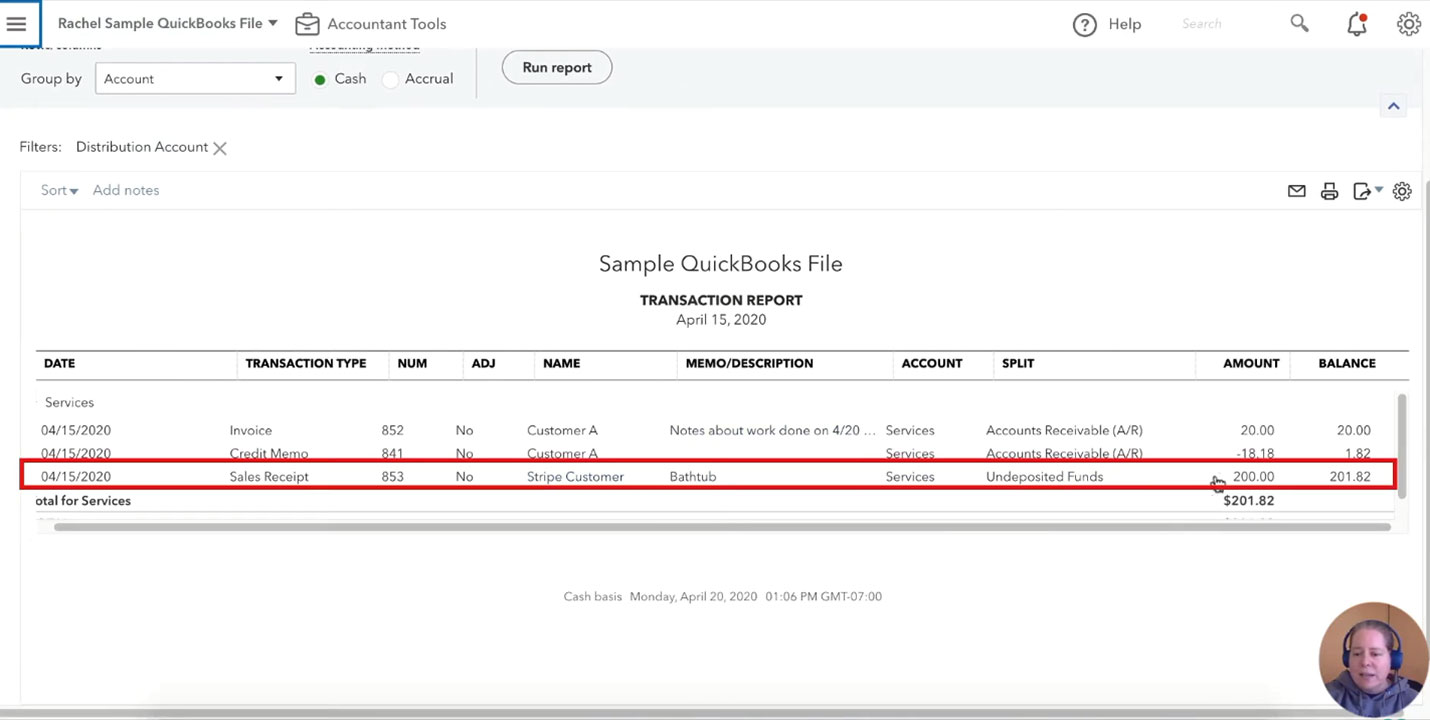Home>Finance>How Does A Balance Transfer Affect Credit Score


Finance
How Does A Balance Transfer Affect Credit Score
Modified: February 20, 2024
Learn how balance transfers can impact your credit score and improve your financial situation. Understand the effects of balance transfers on your overall finance management.
(Many of the links in this article redirect to a specific reviewed product. Your purchase of these products through affiliate links helps to generate commission for LiveWell, at no extra cost. Learn more)
Table of Contents
Introduction
When it comes to managing personal finances, understanding the impact of various financial decisions is crucial. One such decision that can significantly affect an individual’s financial well-being is a balance transfer. This financial maneuver involves transferring the outstanding balance from one credit card to another, often with the goal of securing a lower interest rate and reducing overall debt.
However, the implications of a balance transfer extend beyond the immediate benefits of lower interest rates. One of the primary concerns for individuals considering a balance transfer is its impact on their credit score. Your credit score plays a pivotal role in your financial life, influencing your ability to secure loans, favorable interest rates, and even certain job opportunities. Therefore, it’s essential to understand how a balance transfer can affect your credit score and the factors to consider before making this financial move.
In this article, we will delve into the intricacies of balance transfers and explore how they can impact your credit score. We will also provide valuable insights into the factors to consider before opting for a balance transfer and offer practical tips for minimizing any potential negative effects on your credit score. By gaining a comprehensive understanding of the relationship between balance transfers and credit scores, you can make informed financial decisions that align with your long-term goals and financial well-being.
Understanding Balance Transfers
Before delving into the impact of balance transfers on credit scores, it’s essential to grasp the fundamental concept of this financial strategy. A balance transfer involves moving the existing debt from one credit card to another, typically a new card with a lower interest rate. This maneuver is often pursued by individuals aiming to reduce the financial burden of high-interest credit card debt and gain more favorable repayment terms.
Balance transfers are commonly offered by credit card companies as a means to attract new customers and provide relief to individuals struggling with high-interest debt. The new credit card may offer an introductory period with a significantly lower or even 0% interest rate on transferred balances, making it an appealing option for those looking to save on interest costs and expedite their debt repayment.
It’s important to note that balance transfers often come with associated fees, typically calculated as a percentage of the transferred amount. Despite these fees, the potential savings from reduced interest rates can outweigh the initial costs, making balance transfers a viable option for many individuals seeking financial relief.
Furthermore, understanding the terms and conditions of the new credit card, including the duration of the introductory interest rate period, any limitations on the amount that can be transferred, and the standard interest rate after the introductory period, is crucial before proceeding with a balance transfer.
By comprehending the mechanics of balance transfers and the potential benefits they offer, individuals can make informed decisions regarding their financial management. However, it’s equally important to consider the implications of this strategy on one’s credit score, as this factor holds significant weight in the realm of personal finance.
The Impact of Balance Transfers on Credit Scores
When considering a balance transfer, it’s natural to be concerned about its potential impact on your credit score. Your credit score is a numerical representation of your creditworthiness, and it is used by lenders to assess the risk of extending credit to you. Several factors contribute to your credit score, including payment history, credit utilization, length of credit history, new credit inquiries, and the types of credit accounts you hold.
One of the primary concerns regarding balance transfers is the effect on credit utilization, which is the ratio of your outstanding credit card balances to your total available credit. When you transfer a balance from one credit card to another, it can impact this ratio. If the new card has a lower credit limit or if you transfer a substantial portion of your existing credit card debt, your credit utilization may increase, potentially leading to a temporary decrease in your credit score.
Additionally, the act of applying for a new credit card to facilitate the balance transfer can result in a hard inquiry on your credit report. While a single hard inquiry may have a minimal impact on your credit score, multiple inquiries within a short period can signal to lenders that you are actively seeking additional credit, which may be perceived as a higher risk.
However, it’s important to note that the impact of a balance transfer on your credit score is not solely negative. By consolidating high-interest debt and making timely payments on the new card, you can demonstrate responsible credit management, which may have a positive influence on your credit score over time.
Understanding the potential effects of a balance transfer on your credit score is essential for making informed financial decisions. While there may be a temporary dip in your credit score due to the factors mentioned, proactive measures can mitigate any adverse impact and set the stage for long-term credit health.
Factors to Consider Before Making a Balance Transfer
Before proceeding with a balance transfer, it’s crucial to carefully evaluate several key factors to ensure that this financial maneuver aligns with your overall financial goals and circumstances.
- Introductory Interest Rate Period: Evaluate the duration of the introductory period during which the new card offers a lower or 0% interest rate on transferred balances. Consider whether this timeline allows you sufficient time to repay the transferred amount before the standard interest rate takes effect.
- Balance Transfer Fees: Take into account the fees associated with the balance transfer, typically calculated as a percentage of the transferred amount. Compare these fees with the potential interest savings to determine if the transfer is financially advantageous.
- Credit Limit and Utilization: Assess the credit limit of the new card and the impact of transferring a balance on your overall credit utilization. Be mindful of how the transfer may affect this ratio and potentially influence your credit score.
- Standard Interest Rate: Understand the standard interest rate that will apply after the introductory period. It’s essential to know the long-term interest implications to make an informed decision about the sustainability of the transfer.
- Impact on Credit Score: Consider the potential effects on your credit score, including changes in credit utilization and the impact of new credit inquiries. Understanding these implications can help you prepare for any temporary fluctuations in your credit score.
- Repayment Plan: Have a clear repayment plan in place to address the transferred balance within the introductory period, if possible. Calculate the monthly payments required to eliminate the debt before the standard interest rate applies.
By carefully evaluating these factors and their implications, you can make an informed decision regarding a balance transfer. It’s essential to weigh the potential savings from reduced interest against the associated fees and the impact on your credit score, ensuring that the transfer supports your overall financial well-being.
Tips for Minimizing the Impact on Credit Score
While a balance transfer may initially affect your credit score, there are proactive steps you can take to minimize any potential negative impact and safeguard your credit health.
- Strategic Credit Card Selection: When choosing a credit card for the balance transfer, opt for one that aligns with your credit utilization goals. Select a card with a sufficient credit limit to accommodate the transferred balance without significantly impacting your credit utilization ratio.
- Timely Repayment: Commit to making timely payments on the new card following the balance transfer. Consistent, on-time payments demonstrate responsible credit management and can contribute to mitigating any negative impact on your credit score.
- Debt Reduction Plan: Develop a clear plan to reduce and eliminate the transferred balance within the introductory period. By prioritizing debt repayment, you can minimize the duration of increased credit utilization and demonstrate proactive debt management to credit reporting agencies.
- Monitor Credit Utilization: Keep a close eye on your overall credit utilization across all credit accounts. If the balance transfer significantly impacts this ratio, consider adjusting your spending or repayment strategies to maintain a favorable credit utilization level.
- Limit New Credit Inquiries: Minimize new credit inquiries during and after the balance transfer process. Multiple inquiries within a short timeframe can signal risk to lenders, potentially impacting your credit score. Focus on managing your existing credit accounts effectively.
- Regular Credit Monitoring: Stay proactive by monitoring your credit score and report regularly. This allows you to track any fluctuations resulting from the balance transfer and address any inaccuracies that may arise during the process.
By implementing these tips, you can navigate the balance transfer process while minimizing its impact on your credit score. Responsible credit management, proactive debt reduction strategies, and a clear understanding of your credit utilization can collectively contribute to maintaining a healthy credit profile despite the temporary adjustments associated with a balance transfer.
Conclusion
Understanding the interplay between balance transfers and credit scores is essential for individuals seeking to manage their debt effectively while preserving their creditworthiness. While a balance transfer can offer significant interest savings and facilitate debt repayment, it’s crucial to approach this financial maneuver with careful consideration of its potential impact on credit scores.
By comprehending the factors that influence credit scores, including credit utilization, new credit inquiries, and payment history, individuals can make informed decisions regarding balance transfers. Evaluating the duration of introductory interest rate periods, associated fees, and the long-term implications on credit utilization and credit scores is paramount in determining the suitability of a balance transfer for one’s financial circumstances.
Furthermore, proactive measures, such as strategic credit card selection, timely repayment, and diligent debt reduction planning, can help minimize any temporary impact on credit scores resulting from a balance transfer. By monitoring credit utilization, limiting new credit inquiries, and maintaining regular credit score oversight, individuals can navigate the balance transfer process while safeguarding their credit health.
In essence, a balance transfer can be a valuable tool for managing high-interest debt, but it should be approached with a comprehensive understanding of its potential effects on credit scores. By integrating the insights and tips provided in this article, individuals can leverage balance transfers as a strategic means to alleviate debt burdens while preserving and enhancing their creditworthiness in the long run.














